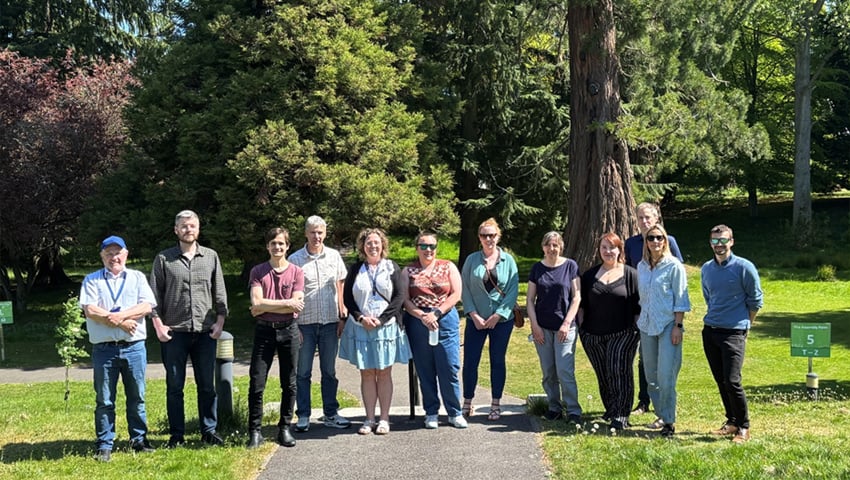A groundbreaking project exploring the power of fungi to combat agricultural pollution is making significant strides, with researchers looking to begin live field trials later this year.
The initiative, titled Farming Futures: Fungi for Nutrient Recovery, brings together expertise from the Cheshire Wildlife Trust, Harper Adams University, Rhizocore Technologies, and The James Hutton Institute to develop water filters using a variety of fungi strains. These mycoremediation filters will address the widespread issue of diffuse agricultural pollution, where runoff from farmlands containing fertilisers, pesticides, and animal waste negatively impacts water quality and aquatic marine life.
Since the initial announcement in February, the project team has been working on critical lab investigations to analyse various fungi strains. This rigorous process involves benchmarking the performance of these strains against common agricultural pollutants, a crucial step in optimising the selected strains for future live trial deployments.
The team has also been working to understand the hydrological dynamics, reviewing water quality at potential sites for deployment, and assessing how the filters can work in real-life farm scenarios.
Dr Phil Schuler, Head of R&D at Rhizocore Technologies, said, “We’ve been incredibly busy in the lab, focussing on understanding which fungal strains offer the most promising solutions for mitigating agricultural pollution. Our goal is to identify and optimise the most effective strains to ensure the success of our upcoming live trials.”
A key milestone for the project was the team’s first in-person meeting on 15th May at the James Hutton Institute in Aberdeen. Representatives from all partner organisations converged to strategically plan the next phases of work.
The meeting also included a valuable site visit to the James Hutton Institute farm at Glensaugh, providing practical insights and context for the upcoming field deployments.
The project is now firmly on track for the first deployment of its innovative mycoremediation filters in both Scotland and England later this year. These live trials will be a pivotal step in demonstrating the real-world efficacy of using fungi to create more sustainable agricultural practices.
Dr Lipe Renato, a researcher at the Hutton, said, “We’ve been working to identify which substrate materials are best suited for use in the filters alongside selected fungi. This step is essential to ensure the system performs effectively once deployed. Our next phase is to test the filters under controlled lab conditions, which will give us the insights we need before moving into real-world trials.”
